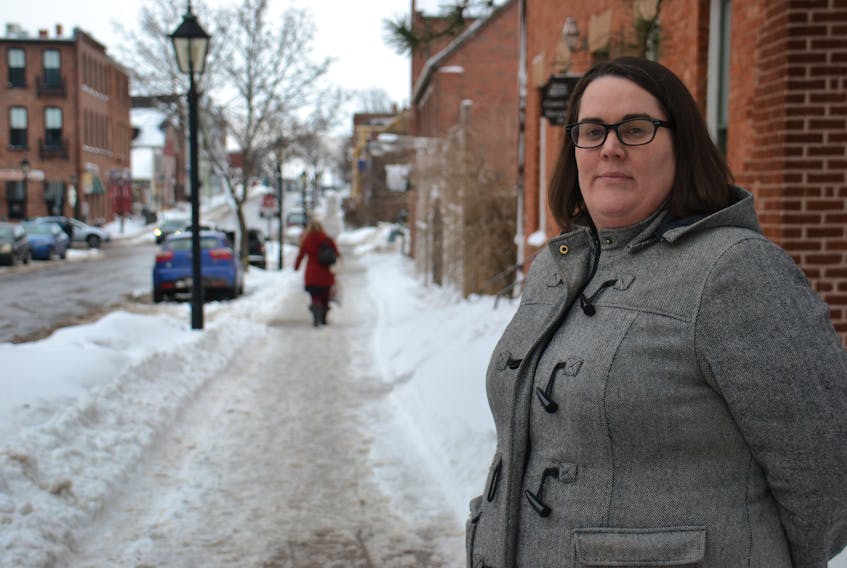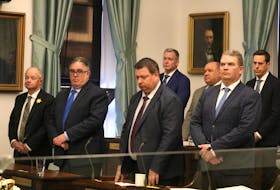CHARLOTTETOWN, P.E.I. — An organization that promotes women’s equality is calling for changes to the rules governing child support payments in P.E.I.
The Women’s Network P.E.I. says a guideline that allows a 30-day grace period in child support payments is causing unreasonable stress for single mothers. Close to 80 per cent of single parents in P.E.I. are women.
"You have 30 days until a penalty is applied to a late payment," said Jillian Kilfoil, executive director of the Women’s Network.
“Even if you have an agreement on paper, the money doesn't actually flow in a way that gives people the money when they need it."
Kilfoil said this process leaves some parents, including women who have left a marriage as a result of domestic violence, with little ability to financially plan when a child support payment may be received each month.
“Even if you have an agreement on paper, the money doesn't actually flow in a way that gives people the money when they need it."
The Guardian spoke to two parents currently receiving child support, on condition of anonymity. Both said that they have experienced periods of 60 days or more in which they did not receive a child support payment.
Kilfoil says late payments should be subject to fines after five business days. She also said the federal formula used to determine support payments should better reflect the actual cost of raising children.
But she also believes the provincial program responsible for enforcement of child support, known as the maintenance enforcement program, should be reviewed.
"There's a lot of lone parent households – a lot of them run by women who are owed money – and they have not received payment. And there doesn't seem to be recourse to get that back," Kilfoil said.
Arrangements for child support payments are set out in legal agreements reached between parents after a separation.
But rules governing these payments span both federal and provincial jurisdiction. The federal government sets guidelines for child support, which includes the 30-day grace period.
Child Support Payments:
- Set under a federal government guideline, based on income.
- Payments enforced provincially by the maintenance enforcement program, operated by the Department of Justice and Public Safety.
The provincial maintenance enforcement program collects and distributes the payments. If payments are owing, a legal order can require funds be paid from wages or other income. Federal payments, such as EI or CPP benefits can be intercepted and paid to maintenance enforcement.
Clare Henderson, director of family law and court services for the province, acknowledged collecting arrears from child support payments is difficult. She said the 30-day grace period allowed staff of maintenance enforcement to focus on those who owe the most.
“At the end of each month, there are a number of Island families that don't get any money or don't get all of the money that they're entitled to,” Henderson said.
"If we had to commence enforcement action immediately, the day after the first of the month, we would not be able to focus on the families that aren't getting any, or all, support."
A total of $10.4 million in child support arrears is currently owed to the provincial maintenance enforcement program.
But $3.8 million of these arrears are from individuals who live outside of P.E.I. Responsibility for collection from these individuals would fall on the province in which they live, even if the payee resides in P.E.I.
Another $3.8 million of arrears is from cases in which both parents live on P.E.I., while another $2.8 million is owed from payors who live on P.E.I., while the payee does not. Collection for this $6.6 million would fall within P.E.I.’s jurisdiction.
The total arrears owing often fluctuates each month, Henderson said, due to inter-provincial migration.
“While we are very good at engaging with all of the tools that we have, unfortunately we cannot guarantee that we're going to be able to collect or disburse support," Henderson said.
Justice and Public Safety Minister Bloyce Thompson said his department does regular checks on the maintenance enforcement program but said no other substantial changes are planned.
A 2016 auditor general of P.E.I. report flagged a number of inconsistencies related to enforcement practices of the maintenance enforcement program.
The report made eight recommendations related to tightening up enforcement procedures. As of 2019, half had not been implemented.









